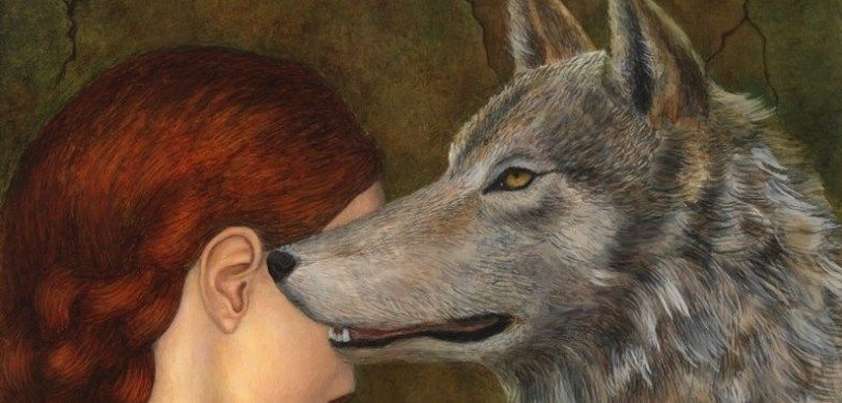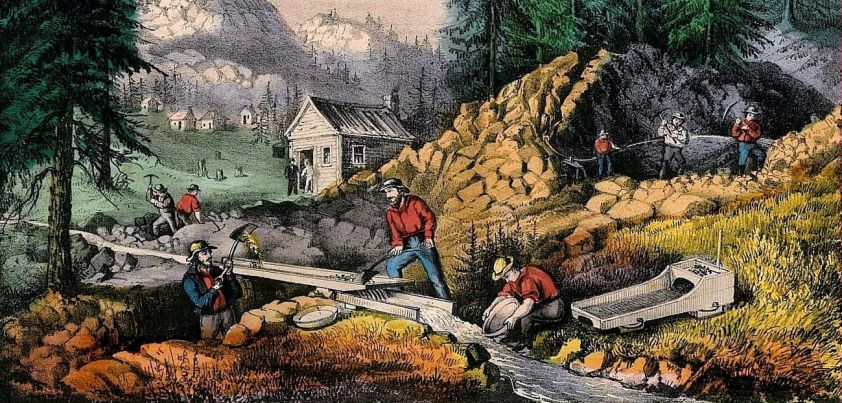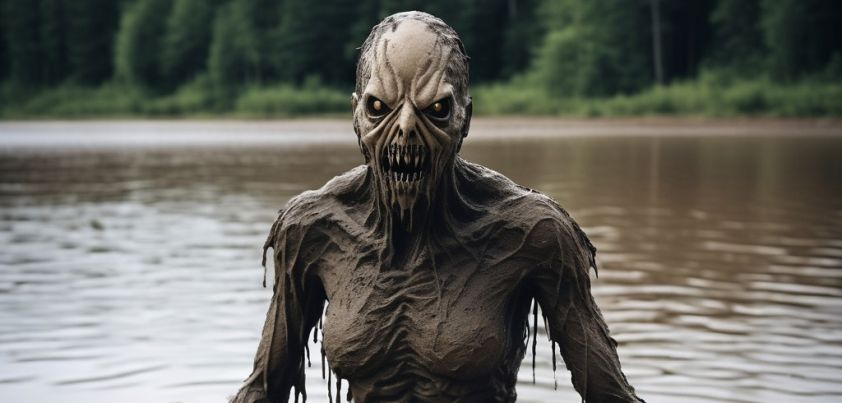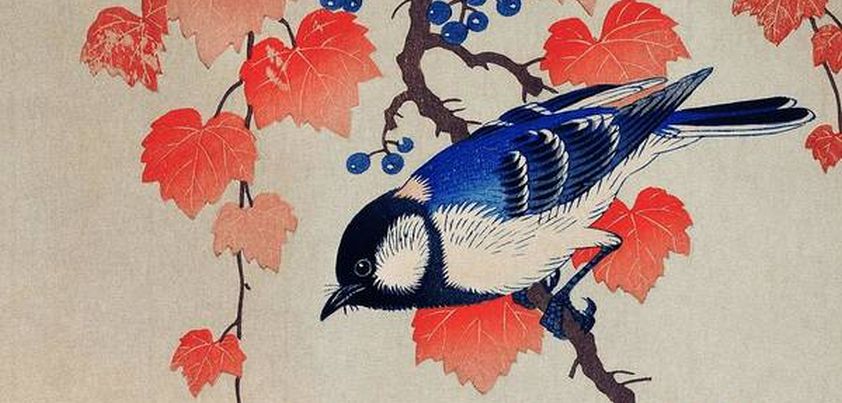 The early part of Angela Carter’s Company of Wolves comprises background and several anecdotes which build anticipation and atmosphere. The main story, which doesn’t start until one-third of the way through the text, is an adult-oriented adaption of Charles Perrault’s Little Red Riding Hood. Carter reinforces Perrault’s original theme through eroticism. The addition of the wolf choir outside the cabin (“Who has come to sing us carols, she said.” “Those are the voices of my brothers, darling; I love the company of wolves.”) reflects the feminist view (and Carter’s?) that all men have an innate desire to deflower young women. More…
The early part of Angela Carter’s Company of Wolves comprises background and several anecdotes which build anticipation and atmosphere. The main story, which doesn’t start until one-third of the way through the text, is an adult-oriented adaption of Charles Perrault’s Little Red Riding Hood. Carter reinforces Perrault’s original theme through eroticism. The addition of the wolf choir outside the cabin (“Who has come to sing us carols, she said.” “Those are the voices of my brothers, darling; I love the company of wolves.”) reflects the feminist view (and Carter’s?) that all men have an innate desire to deflower young women. More…
All posts by shortsonline
The Luck of Roaring Camp
 In this story by Bret Harte, strange things happen when a Californian gold prospecting camp “adopts” an orphaned baby born to its only woman resident, the camp prostitute. The birth brings a streak of good fortune to the camp, resulting in the baby being named Thomas Luck. The Luck’s presence inspires the men to clean up the camp, their habits, and themselves. The camp prospers, and there is even talk of encouraging families to move there for the sake of the child. Unfortunately, the Luck’s luck cannot defeat nature. Themes: isolation, lawlessness, community, change/redemption, the inconstancy of luck. More…
In this story by Bret Harte, strange things happen when a Californian gold prospecting camp “adopts” an orphaned baby born to its only woman resident, the camp prostitute. The birth brings a streak of good fortune to the camp, resulting in the baby being named Thomas Luck. The Luck’s presence inspires the men to clean up the camp, their habits, and themselves. The camp prospers, and there is even talk of encouraging families to move there for the sake of the child. Unfortunately, the Luck’s luck cannot defeat nature. Themes: isolation, lawlessness, community, change/redemption, the inconstancy of luck. More…
Key Item
 In this story, Isaac Asimov’s favorite supercomputer Multivac has a big problem. It doesn’t respond to commands, and isn’t following its built-in program to self-diagnose the cause. As the global economy depends on Mulitvac, this could result in panic across the world. Teams of technicians have been trying to identify what is wrong for three days. Finally, a scientist discovers the “key item” needed to fix the problem. It is a simple thing that we are all taught to use as children. Themes include the dangers of Artificial Intelligence and/or relying solely on technology, scientific hubris, good manners. More…
In this story, Isaac Asimov’s favorite supercomputer Multivac has a big problem. It doesn’t respond to commands, and isn’t following its built-in program to self-diagnose the cause. As the global economy depends on Mulitvac, this could result in panic across the world. Teams of technicians have been trying to identify what is wrong for three days. Finally, a scientist discovers the “key item” needed to fix the problem. It is a simple thing that we are all taught to use as children. Themes include the dangers of Artificial Intelligence and/or relying solely on technology, scientific hubris, good manners. More…
A Change of Aunts
 In this story by Vivien Alcock, eleven-year-old Meg and eight-year old William are horrified when their kindly Aunt Janet gets married and is replaced by wicked, cruel Aunt Gertrude. William’s greatest fear is that Gertrude will find out about the short cut to town that runs past the haunted pond in Teppit’s Wood. Everyone knows the story of the ghost but, of course, most adults don’t believe it. His fear is realized when late one evening Gertrude forces the two children to accompany her home through the woods. It turns out to be the last mean thing she ever did! More…
In this story by Vivien Alcock, eleven-year-old Meg and eight-year old William are horrified when their kindly Aunt Janet gets married and is replaced by wicked, cruel Aunt Gertrude. William’s greatest fear is that Gertrude will find out about the short cut to town that runs past the haunted pond in Teppit’s Wood. Everyone knows the story of the ghost but, of course, most adults don’t believe it. His fear is realized when late one evening Gertrude forces the two children to accompany her home through the woods. It turns out to be the last mean thing she ever did! More…
The Jay
 The Jay is one of Yasunari Kawabata’s famous Palm-of-the-Hand Stories. A small bird is causing a fuss because it can’t find a lost chick that has fallen from its nest. A young woman about to enter into an arranged marriage also feels lost. She has never known her birth mother, who her father divorced when she was very young, and lives with her grandmother. Her father and stepmother are coming to visit with the mother of her fiancé. The major theme, exemplified by the bird, is the intensity of motherly love. Other themes: family, marriage, uncertainty, wisdom of the aged. More…
The Jay is one of Yasunari Kawabata’s famous Palm-of-the-Hand Stories. A small bird is causing a fuss because it can’t find a lost chick that has fallen from its nest. A young woman about to enter into an arranged marriage also feels lost. She has never known her birth mother, who her father divorced when she was very young, and lives with her grandmother. Her father and stepmother are coming to visit with the mother of her fiancé. The major theme, exemplified by the bird, is the intensity of motherly love. Other themes: family, marriage, uncertainty, wisdom of the aged. More…